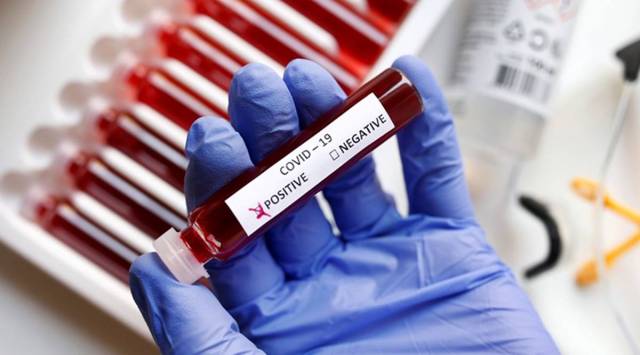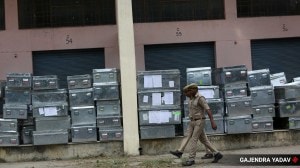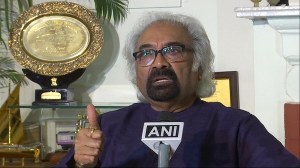- India
- International
Amreli, Bhavnagar tackle rising Covid cases amid reverse migration of labour force
Amreli that imposed a strict lockdown, sealing its borders that were manned by checkposts, had reported its first case only on May 13, nearly two months after Gujarat had reported its Covid-19 outbreak.
 The Administrator directed Municipal Commissioner to set up a control room, which will be manned by responsible officials.
The Administrator directed Municipal Commissioner to set up a control room, which will be manned by responsible officials.As Gujarat inches towards one lakh cases, districts such as Amreli and Bhavnagar have been faced with the challenge of tackling the rising cases amid reverse migration of labour force from Surat and other areas. Migrants from these districts power the diamond polishing units of Surat.
Amreli that imposed a strict lockdown, sealing its borders that were manned by checkposts, had reported its first case only on May 13, nearly two months after Gujarat had reported its Covid-19 outbreak. By May 31, the district had reported its first Covid death as well. In June, the district reported 85 cases and six deaths. In July, Amreli already had 370 cases and three more deaths, and by August the tally had added by over 660 cases.
Bhavnagar which also includes the areas in the municipal corporation reported its first case in March, and now has over 2,500 cases adding over 1,100 in August and 18 deaths. It was also one of the districts to first report a case from those who attended the Nizamuddin markaz.
District collector Ayush Oak said that Amreli’s spurt came in three phases of reverse migrant influx.

“First was post May 7, until June-end when 2.5 lakh people from Ahmedabad, Surat and Mumbai came back to the district. Two special trains had come from Mumbai wherein 35-36 cases tested positive. A second wave occurred when cases in Surat rose and textile and diamond units started shutting down there and people started returning here. It was during this period that the returnees tested positive in some cases and in other cases they ended up infecting others. A third phase we noticed was around July 14-15 when daily 3,000 to 4,000 people entered the state. Thus while until mid-July only 10-15 per cent of our cases were of local residents and the rest had a travel history, the infection has now spread among the local population and we are seeing 60 per cent of our cases among them,” Oak said.

Until mid-July, the district was testing 60 samples on an average. At present, the district sends 130-150 samples a day for RTPCR testing at Bhavnagar facility and the remaining 1,350 samples are antigen tested.
Being one of the last districts to peak, Amreli has had time to build up its capacities. The district has a 130-bed civil hospital and another 108-bed hospital, of which 47 per cent beds are occupied at present.
“Fifteen days ago, we saw our maximum occupancy at 61 per cent. But with more manpower available for monitoring, we are now encouraging home isolation as well,” said Oak.
With nearly equitable distribution of cases from the district’s urban as well as rural areas, Oak added that rural areas see better compliance of quarantine as “sarpanches are very active (in ensuring people are quarantining).”
Given that the infection has now spread among its local population, Oak said the primary strategy is to screen for superspreaders and rely on a three-pronged notification system — from private doctors’ OPDs, government doctors’ OPDs, pharmacy stores wherein a customer purchases paracetamol or azithromycin medicines.
In Bhavnagar, local authorities said the cases are stabilising across the district, with a considerably lower test positivity rate and only 50 per cent occupancy in Covid-19 facilities in the district. Bhavnagar municipal commissioner M A Gandhi as well as district collector Gaurang Makwana said that while the initial cases seen in the district in June and July reflected a travel history, especially from Surat, majority of those who tested positive in August, are local residents.
When cases in Ahmedabad were rising rapidly, doctors from Bhavnagar government hospital were deputed on Covid-19 duty to Ahmedabad, but the same reciprocation did not happen in July when Bhavnagar saw a rise in cases, said Makwana.
Gandhi said, “We saw a rise in cases starting June 19. We continued to see the rise even in July. The major effect of influx was seen in the rural side in July where say 60-65 per cent of the positive cases had a travel history, 90 per cent of whom had travelled from Surat. Among the positive cases in the BMC jurisdiction, 15-20 per cent had travel history.”
The district was seeing almost double the numbers reported from its corporation limits vis-a-vis that reported from the rural limits on most days in early August.
Makwana said, “On an average, we now see 65 per cent of the daily new cases from the urban and 35 per cent from rural. The Bhavnagar Municipal Corporation which has a population of roughly seven lakh, tests 800 to 1,000 samples a day and the rural limits which has a population of roughly 16 lakh and combined with Surat influx, taking it to 20 lakh or so, tests approximately 1,500 to 2,000 samples each day.”
Of the total 2,500-odd tests conducted daily at present, 200 include RTPCR tests, while the remaining are antigen tests, said Gandhi. Apart from deploying antigen testing in PHCs, 84 Dhanvantari raths in diamond factories and other smaller units and factories, the district is also conducting random testing at two checkpoints of the district. From testing 250-odd samples in June to 500-odd samples in July, with the declining test positivity rate, the municipal corporation is mulling delisting extra beds in its private Covid-19 treatment partnering hospitals.
“Of the 320 beds at the government Sir T Hospital, we had 177 patients until 8 am Wednesday and there were another 113 patients in the 200 private beds… Apart from Bhavnagar patients, districts of Botad, Amreli and part of Gir Somnath too rely on our medical facilities,” said Gandhi.
An initial challenge of medical personnel was faced in the district, admitted Makwana. “IMA chapter was very cooperative and doctors were roped in who now conduct daily rounds in one block and work in shifts,” said Makwana.
Apr 24: Latest News
- 01
- 02
- 03
- 04
- 05







































